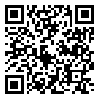Volume 31, Issue 3 (2025)
AIJH 2025, 31(3): 115-133 |
Back to browse issues page
Download citation:
BibTeX | RIS | EndNote | Medlars | ProCite | Reference Manager | RefWorks
Send citation to:



BibTeX | RIS | EndNote | Medlars | ProCite | Reference Manager | RefWorks
Send citation to:
Sharifi M, Sadeqi H, Nedaee T. A Study of the Conflict Between Mathematical Rules and Beliefs from the Perspective of Self-Love and Islam. AIJH 2025; 31 (3) :115-133
URL: http://aijh.modares.ac.ir/article-31-70003-en.html
URL: http://aijh.modares.ac.ir/article-31-70003-en.html
1- PhD Candidate in Islamic Studies, Ethics Department, University of the Quran and Hadith of Qom, Qom, Iran , msh.94@chmail.ir
2- Professor, Department of Ethics, University of the Quran and Hadith of Qom, Qom, Iran
3- Associate Professor, Department of Sports Sciences, Faculty of Literature and Humanities, University of Qom, Qom, Iran
2- Professor, Department of Ethics, University of the Quran and Hadith of Qom, Qom, Iran
3- Associate Professor, Department of Sports Sciences, Faculty of Literature and Humanities, University of Qom, Qom, Iran
Abstract: (1067 Views)
The conflict between mathematical rules and beliefs, as well as the correct choice, is an ethical issue. The resolution of this conflict depends on providing a criterion for evaluation so that the moral agent can make the correct choice based on it. This current research addresses the standards and trends in conflicting requirements through an analytical approach from the perspective of psychological egoism concerning self-love and Islam. Psychological egoism, which is based on the inclination towards self-love, perceives greater good and pleasure in adhering to mathematical rules. This thinking often neglects other perspectives in calculations by focusing solely on global systems and expressing certain truths. Although some Quranic verses affirm part of this perspective, other verses indicate alternative directions and their superiority. Therefore, monopolizing the stance on self-love is incomplete and does not encompass all truths. From the viewpoint of Islamic scholars, reason evaluates conflicting parties based on fundamental rules of conflict, where preference is more significant than obligation. Compliance with God's essential requirements is crucial, and thus dismissing unnecessary demands is a prerequisite for beliefs prior to mathematical rules. Creating a relative consensus towards modifying mathematical rules that conflict with beliefs is another method to resolve these conflicts.
Article Type: Original Research |
Subject:
Arts and Humanities (General)
Received: 2023/06/22 | Accepted: 2024/05/30 | Published: 2025/03/30
Received: 2023/06/22 | Accepted: 2024/05/30 | Published: 2025/03/30
Send email to the article author
| Rights and permissions | |
 |
This work is licensed under a Creative Commons Attribution-NonCommercial 4.0 International License. |






